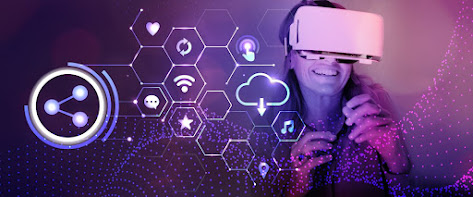Experience the Future Now: How Metaverse and AI are Bridging the Gap between Virtual and Real Worlds and Transforming Our Lives
Are you tired of feeling disconnected and isolated in a world that's increasingly dependent on technology? Imagine a world where technology bridges the gap between virtual and real worlds, creating a more connected, immersive, and fulfilling experience. With the metaverse and AI, the future is here, and it's waiting for you to take part. The metaverse is a virtual world where people can interact with each other and engage in activities just as they do in the physical world. And with AI technology, the metaverse is becoming increasingly intelligent and responsive, creating a bridge between the virtual and real worlds.
In a world that's increasingly isolated, the metaverse and AI are offering new possibilities for social interaction, education, and entertainment. Imagine attending virtual events with people from around the world, or taking virtual classes that simulate real-world scenarios. With AI-powered technology, the metaverse is making it possible to have immersive experiences that feel just as real as the physical world.
But the benefits of the metaverse and AI don't stop there. They also have the potential to revolutionize industries such as healthcare, business, and even environmental conservation. With AI-powered technology, we can receive personalized healthcare recommendations based on our unique health data, or work in virtual offices that reduce our carbon footprint.
The metaverse and AI are transforming our lives in ways we never thought possible. They offer us a chance to connect with each other, to learn and grow, and to make a positive impact on the world around us. So, what are you waiting for? The future is here, and it's waiting for you to take part.
Join the revolution now and subscribe to our blog. Be the first to learn about the latest updates and developments in the metaverse and AI. Don't miss out on the chance to experience the future now.

Comments
Post a Comment